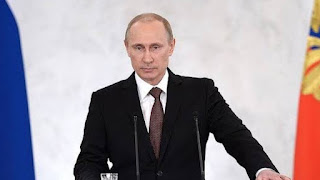While he stopped short of announcing an outright ban, Putin's remarks underscore a clear strategic pivot towards fostering Russia's own indigenous software solutions, a move likely spurred by the comprehensive Western sanctions currently weighing heavily on the Russian economy.
This declaration arrives amidst a backdrop of escalating geopolitical tensions and punitive economic measures. Since Russia's military operation in Ukraine commenced in February 2022, a broad coalition of Western nations, including the US, UK, EU, Australia, Canada, and Japan, have imposed over 16,500 sanctions on Russia. These measures have largely targeted Russia's financial sector, leading to the freezing of a staggering $350 billion (£276 billion) in foreign currency reserves—nearly half of Russia’s total.
Furthermore, the EU reports that approximately 70 percent of assets held by Russian banks have been frozen, and several key Russian banks have been disconnected from the Swift financial messaging system, severely impeding their international transactions. These extensive sanctions build upon earlier restrictions imposed in 2014 following Russia's annexation of Crimea.
Putin's comments on foreign tech firms also coincided with a notable exchange between the Kremlin and President Donald Trump. Following a significant Russian airstrike on Ukraine, Trump had publicly labeled the Russian leader "crazy." Kremlin spokesman Dmitry Peskov retorted by questioning Trump's emotional state, suggesting the remarks were made amidst "emotional overload of absolutely everyone and with emotional reactions," while firmly stating that Putin was "doing what must be done for Russia’s security."
Trump, utilizing his Truth Social platform, had not held back in his criticism, stating, "I’ve always had a very good relationship with Vladimir Putin of Russia, but something has happened to him. He has gone absolutely CRAZY!" He further condemned the "needless killing of a lot of people" and the "missiles and drones... being shot into cities in Ukraine, for no reason whatsoever." Trump articulated his long-held belief that Putin's ultimate goal is to seize all of Ukraine, warning that such an outcome "will lead to the downfall of Russia!"
Interestingly, Trump also directed criticism towards Ukrainian President Volodymyr Zelenskyy, accusing him of exacerbating the situation. Trump stated, "President Zelenskyy is doing his country no favours by talking the way he does. Everything out of his mouth causes problems, I don’t like it, and it better stop." This isn't the first time Trump has publicly suggested Zelenskyy is too forceful in his appeals for military and financial assistance from Western allies.
The confluence of these events paints a complex picture of Russia's strategic maneuvering. The call to "throttle" foreign tech companies suggests a deepening resolve to achieve technological self-sufficiency and mitigate the impact of Western sanctions. This push for domestic software solutions could lead to significant shifts in Russia's digital landscape, potentially isolating its online ecosystem further from the global internet.
The diplomatic barbs exchanged between Moscow and Trump, meanwhile, underscore the highly charged and unpredictable nature of international relations surrounding the ongoing conflict in Ukraine. As sanctions continue to bite and the war persists, Russia's pivot towards digital autonomy will be a key development to watch.
